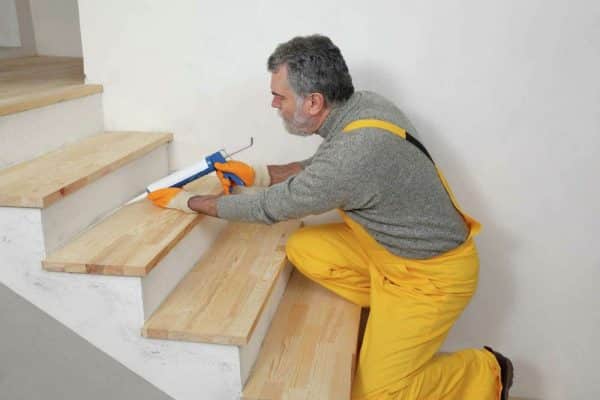The Montessori approach to education is renowned for its emphasis on independence, freedom within limits, and respect for a child’s natural psychological development. Among its many innovative practices, the design and use of Montessori tables and chairs play a pivotal role in fostering social development among children. This article delves into how these pieces of furniture facilitate social interaction, encourage sharing and collaboration, and instill respect for others’ workspaces, contributing significantly to the social development of young learners.

The Philosophy Behind Montessori Furniture
Montessori furniture, including tables and chairs, is meticulously designed with the child’s size, interests, and developmental needs in mind. Unlike traditional classroom pieces, these pieces are lightweight, easily accessible, and proportionate to the kid’s size, enabling them to move and use the furniture independently. This independence is the first step in fostering a social environment where children learn to interact with their surroundings and each other respectfully and collaboratively.
Facilitating Social Interaction
Montessori tables and chairs are not merely functional items; they are integral tools that promote social interaction among children. Here’s how:
Accessibility and Inclusion
Designed for Movement:
The lightweight design of Montessori furniture encourages kids to move desks and chairs as needed, promoting a dynamic and interactive classroom environment. This movement allows children to make choices about where and with whom they work, facilitating natural social interactions.
Size and Proportion:
Furniture that fits the child’s physical dimensions reduces frustration and increases comfort, making social interactions more positive and productive. Kids are more likely to engage in collaborative activities when they feel comfortable in their physical environment.
Encouraging Collaboration and Sharing
Group Work Friendly:
Montessori tables are often large enough to accommodate multiple children, encouraging group activities and projects. This setup naturally fosters collaboration, as kids learn to share space and materials, negotiate roles, and work towards common goals.
Flexible Seating Options:
The availability of different sizes and shapes of desks and chairs supports various group sizes and activity types, from individual work to large group projects. This flexibility supports a range of social interactions, from one-on-one conversations to teamwork.
Respect for Others’ Workspaces
One of the core principles of the Montessori method is respect for the individual and the community, which extends to respect for others’ workspaces.
Personal and Shared Spaces
- Defined Work Areas: Montessori classrooms often use carpets or mats in conjunction with tables and chairs to define individual workspaces. This practice teaches children to respect their own and others’ designated areas, an important aspect of social development.
- Shared Resources: While individual work is valued, Montessori education also emphasizes communal resources and spaces. Learning to work in shared areas without disturbing others fosters a sense of community and mutual respect among children.
The Broader Impact on Society: Preparing Future Citizens
The interactions children have with Montessori tables and chairs do more than facilitate immediate learning; they lay the groundwork for lifelong skills and values essential for societal well-being. By engaging with these carefully designed pieces, kids learn the importance of collaboration, respect, and understanding from a young age.
These early lessons in empathy, inclusivity, and cooperation are critical in preparing them to become thoughtful, responsible citizens. The broader impact of such early social development is profound, offering a foundation for a more empathetic, inclusive, and cooperative society. Through these foundational experiences, Montessori education contributes significantly to shaping the citizens of tomorrow, emphasizing the importance of social responsibility and community engagement.
Enhancing Communication Skills
The arrangement and use of Montessori tables and chairs significantly impact children’s communication skills.
Face-to-Face Interaction
Circular and U-shaped Setups:
These arrangements encourage face-to-face interactions, making it easier for children to communicate, observe facial expressions, and engage in meaningful conversations. Such setups are conducive to developing empathy and understanding diverse perspectives.
Promoting Active Listening
Small Group Dynamics:
Working in small groups at appropriately sized tables encourages children to listen to each other, share ideas, and develop patience and tolerance. These are crucial components of effective communication and social development.
Implementing Montessori Seating
While the child-sized tables and chairs play a pivotal role, certain factors help optimize their power to unite kids in harmonious collaboration.
- Strategic Room Layout
Placing tables spatially close and angled inward intersects sightlines and channels natural curiosity between table clusters. This spotlights collaborative opportunities. - Establishing Routines
Daily practice of returning to “home tables” after work cycles reinforces shared responsibility and care for communal property. - Modeling Expectations
Teachers demonstrating active listening, respectful volume and tone, and inclusive language set the standard for positive peer engagement.
Closing Thoughts
The thoughtful design and strategic use of Montessori tables and chairs play a crucial role in the social development of children. By facilitating independence, encouraging respectful interactions, promoting collaboration, and enhancing communication skills, these pieces of furniture are foundational to creating a nurturing and socially enriching learning environment. The Montessori method’s emphasis on the physical environment as a key component of learning not only supports academic development but also cultivates essential social skills that children will carry with them throughout their lives.









